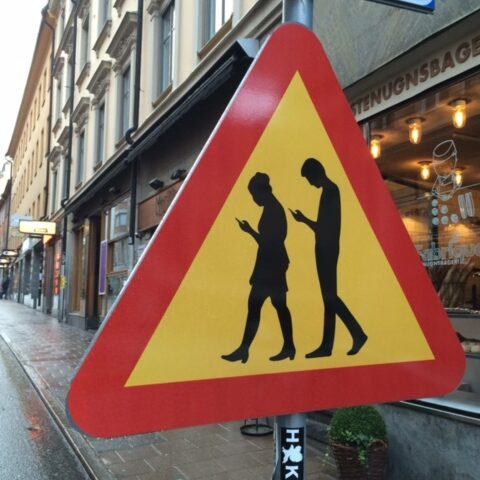Have you procrastinated anything today? Then you will be glad to hear that research says you should not feel guilty about it. There are researchers who would go so far as to say that it can be positive to procrastinate. Or at least quite productive.
This week a participant sent me an article about positive procrastination, from a theory of a professor that he wrote in a book of barely 92 pages, 17 years after he came up with the theory.
How common is procrastination? Do certain people delay tasks more often than others?
Psychologist Piers Steel has made a survey on more than 24,000 people’s procrastination behaviours around the world and learned that 95% of the world populations procrastinate sometimes. (25% are chronic Procrastinators, five times more than in the 70s.
I assume that the increase is due to flexible working hours, personal responsibilities and more opportunities to avoid unpleasant tasks.
The options were fewer in the old days. I can’t imagine a farmer with 17 kids in the 18th century wondering whether he should harvest now or later. Cave Man could not sit back and lazily mumble, “Should we go hunting another day?” When we live in a society where our physical survival does not solely depend on what we do, obviously we are more inclined to put boring tasks off for later. Imagine your manager saying, “Well, have you procrastinated your monthly report, then you won’t get your pay this month.” There are certainly managers who would love to say it. And there are certainly managers who have postponed their own reports.

A method to fool your brain
Anyone who has a job nowadays usually spend a quarter of the day procrastinating. Students procrastinate a third of the day. Men are more likely than women to be chronic Procrastinators, especially young men.
I can only imagine that there are some notorious Procrastinators also at Stanford University, where Dr. John Perry came up with his theory that Procrastinators actually are quite competent people who are not particularly lazy, but just prefer to do something other than what they should do.
It is true that we have a tendency to put off anything boring, difficult, uncomfortable, tasks that takes forever to complete, feels awkward or pointless. And it is true that we would rather do tasks that seems easy, fun and quick. Dr. Perry says we can easily fool the brain to get around the problem of procrastination.
If you have a task that you think is boring enough to postpone, for example, your travel expense report, you can put things on your to-do list that are even worse, scarier, or more difficult. This will make the expense report a very decent option.
To do:
- Travel expense report
- Clean the toilets
- Write an essay of 500 pages on Shakespeare’s sense of humour
- Do absolutely nothing for an hour (Sounds tempting? Come on, you can’t watch TV, check social media, go online, can you even remember when you did absolutely nothing?)
- Assembling an IKEA furniture.
I do not know what works for you. But I am very keen to finish my expense report with those alternatives. Of course, the list should consist of things that you should do anyway, otherwise the method fails.
In fact, this is how I fool myself every morning. If you ask my family about my biggest weakness, they will respond in unison, “She has no patience whatsoever.” I make use of that in the mornings when the kids have had their breakfast and are getting ready for the bus. If I work from home I know there is no idea to start with any focus work until the family is out of the house. This means I can have up to 20 minutes of wait sometimes. 20 minutes is a huge amount of time with my lack of patience. I have time to fix many tasks that are so much more fun compared to just waiting on everyone to leave home. I can clear out my closets, wipe out the kitchen cupboards, clean dust on top of all the shelves. When I fix lunch at home, I have come to the conclusion that I just have enough time to empty the dishwasher in the three minutes it takes to boil pasta.

Don't think, just do it!
If you don’t want to spend time on Dr. Perry’s tactics to break the procrastination behaviours, by performing a pyramid game for yourself, you can always exercise the simplest form of getting things done. Don’t think, just do it! Do it before any thoughts on what you could do instead pops up. Focus on how great it will feel when you’ve done it. If that does not help:
10 tips to stop procrastinating
- Write a list of the things you’ve been putting off. (Do you have trouble coming up with something? Imagine you are going away for three months. What would you like to finish before leaving?)
- Prioritize the tasks. Can any task be deleted?
- Decide what needs to be done first and get started. You will release lovely dopamine when you finish something on the list, which will give you energy for next task.
- Make sure to divide bigger projects into smaller pieces. Clarify the next step and make each step feel easy to achieve.
- Designate time in your calendar for your important tasks. Focus on those tasks in the morning when your brain still has enough energy to tackle them.
- Make sure to avoid interruptions once you get started. If you get bored by your task make sure your surrounding is stimulating i.e. your favourite café, hotel lobby or your best music playlist.
- Ask someone to help you get started. Report your progress to a colleague, friend or your boss.
- Add deadline, but also a start time on your tasks. Schedule them in your calendar.
- Consider how you can make tedious tasks more enjoyable. Challenge yourself.
- Celebrate your success! Reward is in place when you ticked off a task and avoided procrastination.
I meet people every week who are troubled with really bad consciences over tasks they should have done. They laugh, sometimes hysterically, when they realize that they often spend more time thinking about a task, than it would take to finish it. Imagine how great it would feel to start your weekend without the “I ought to have’s”.
Wishing you a great weekend
Petra Brask, Time Management Expert, author and speaker
Procrastination is the art of keeping up with yesterday.
- Don Marquis







